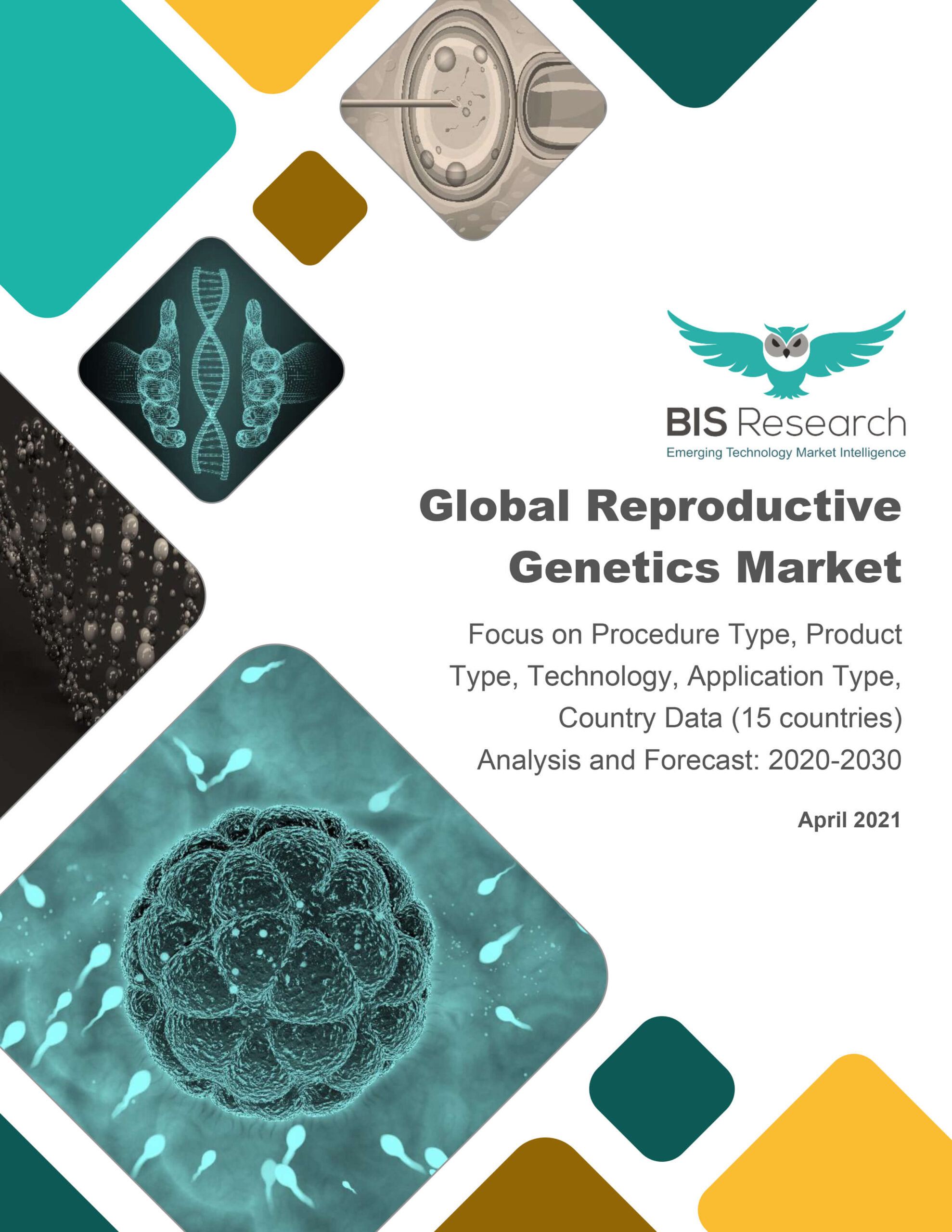Description
Market Report Coverage – Reproductive Genetics
Market Segmentation
• Procedure Type– Pre-Natal Screening, Pre-Implantation Genetic Testing, Infertility Genetic Testing, Carrier Screening
• Product Type– Kits, Laboratory Developed Tests (LDT), Reagents and Consumables
• Application Type– Aneuploidy, Single Gene Disorder, Structural Chromosomal Abnormality, Others
• Technology– PCR, Next-Generation Sequencing, In-Situ Hybridization (ISH), Microarray
Regional Segmentation
• North America– U.S., Canada
• Europe– U.K., Germany, France, Italy, Spain, Rest-of Europe
• Asia-Pacific– Japan, China, India, South Korea, Australia, Rest-of-Asia-Pacific
• Latin America– Brazil, Mexico, Rest-of-Latin-America
• Rest-of-the-World
Growth Drivers
• Declining Cost of Genetic Sequencing Technologies
• Increasing Awareness and Acceptance for Genetic Testing and Screening
• Rising Emphasis on Early Detection and Prevention
• Rising Maternal Age Leading to Pregnancy Complications
Market Challenges
• Lack of Regulations
• Ethical and Social Issues
Market Opportunities
• Shifting of Reimbursement Policies toward Enhanced Genetic Testing Coverage
• Rising Funding and Innovations
• Increasing Consumer Demand
Key Companies Profiled
Agilent Technologies, Inc., BGI, CENTOGENE AG, Fulgent Genetics, Inc., F. Hoffmann-La Roche Ltd, Igenomix, Illumina, Inc., Invitae Corporation, Laboratory Corporation of America Holdings, PerkinElmer, Inc., Myriad Genetics, Inc., OPKO Health, Inc., Quest Diagnostics, QIAGEN N.V., Thermo Fisher Scientific Inc.
Key Questions Answered in this Report:
• What are the most common genetic causes of genetic defects at birth globally?
• What are the emerging technologies that can take over the current technologies for genetic testing within the global reproductive genetics market?
• How are the key market players performing research investments in the respective market?
• What are the major strategies opted by the key players for advancing in the global reproductive genetics market?
• What are the regulations pertaining to the reproductive genetics market among different regions and their impact on the respective market?
• What are the initiatives implemented by different government bodies regulating the development and commercialization of reproductive genetic tests and associated platforms?
• How has COVID-19 impacted the global reproductive genetics market?
• How will the urgency of the pandemic influence the global reproductive genetics market?
• What are the leading companies dominating the global reproductive genetics market?
• What is the reimbursement scenario of the tests offered in the global reproductive genetics market?
• Based on the procedure type, which global reproductive genetics market procedure type is anticipated to witness a massive rise in demand in the forecast period 2021-2030?
• How is each segment of the global reproductive genetics market expected to grow during the forecast period, and what is the revenue expected to be generated by each of the segments by the end of 2030?
• How is the global reproductive genetics industry anticipated to evolve during the forecast period 2021-2030?
• What are the leading trends and consumer preferences witnessed in the global reproductive genetics market?
Market Overview
Reproductive genetics is a branch of science that contributes to predicting and preventing a genetic disorder during the reproductive procedure (both natural and artificial). It refers to the genetic tests and procedures that are used to offer prospective parents any needful information about the probabilities of having a child with any specific genetic disorder.
The advancements in genomic technologies and their implementation within clinical medicine have led to an expanded usage such as carrier screening, diagnosis of genetic disorders prior to implantation, and identifying the causes of infertility.
The respective genetic testing helps in analyzing genetic material such as chromosomes, genes, DNA, RNA, and gene products for accessing genetic changes that have a likelihood of causing any genetic disease after pregnancy in either mother or child.
The global reproductive genetics market is poised to have substantial investment and growth as the demand for such testing escalates, reimbursement improves, and the technology expands to additional, novel applications.
There has been steady progress in the demand for various methods of reproductive genetic testing. For instance, there has been a global explosion in the utilization of additional non-invasive prenatal testing (NIPT) and the continuous expansion of upstream preconception testing (PGD/PGS) and downstream neonatal screening and genetic disorder testing. Further, there has been a rise in the availability of next-generation technologies and panels that allow the screening of genetic disorders at an early stage in the fetus during pregnancy. However, some of these tests are often an out-of-pocket expense for patients, but the demand for genetic information, declining cost of sequencing, and rise in mixed-ethnicity population is expected to propel the growth of the market.
Within the research report, the market has been segmented on the basis of procedure type, product type, application type, technology, and region. Each of these segments covers the snapshot of the market over the projected years, the inclination of the market revenue, underlying patterns, and trends by using analytics on the primary and secondary data obtained.
Competitive Landscape
The global reproductive genetics market consists of numerous large-and small-scale manufacturers and service providers. Presently, with the increasing rate of molecular advancements and the rise in the adoption of genetic tests, there has been an expansion of opportunities for the reproductive genetics market. Some of the strategies opted by the key players within the market are new product offerings, product approvals, partnerships and alliances, mergers and acquisitions, and business expansions.
In the five years (January 2017-February 2021), the market witnessed 23 product offerings, five product approvals, 16 partnerships and alliances, nine mergers and acquisitions, and five business expansions. The increasing awareness for genetic testing with an answer for genetic abnormalities caused has majorly attributed to the growing prominence for reproductive genetic testing.
On the basis of region, North America holds the largest share in the global reproductive genetics market due to improved healthcare infrastructure, rise in awareness, and improvised reimbursement policies in the region. Apart from this, the Asia-Pacific region is anticipated to grow at the fastest CAGR during the forecast period.



Reviews
There are no reviews yet.